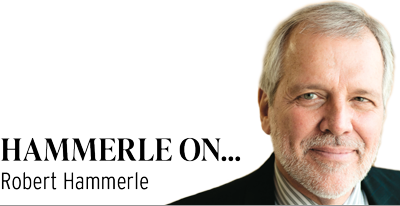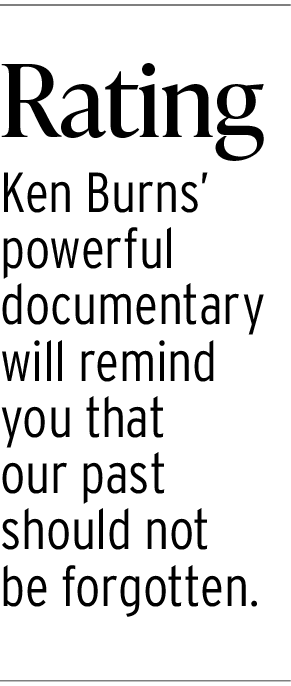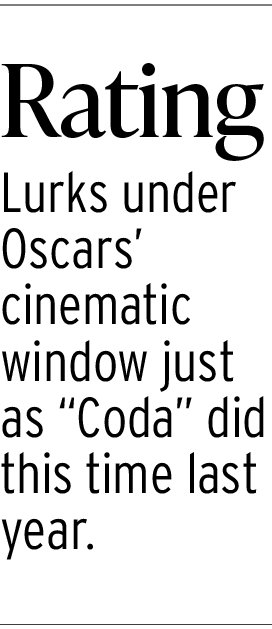Subscriber Benefit
As a subscriber you can listen to articles at work, in the car, or while you work out. Subscribe Now “The U.S. and the Holocaust”
“The U.S. and the Holocaust”
 To begin with, this six-hour, three-part mini-series will keep you glued to your home couch from beginning to end. Our country’s blatant discrimination against immigrants both before, during and after World War II is alive and well to this very day.
To begin with, this six-hour, three-part mini-series will keep you glued to your home couch from beginning to end. Our country’s blatant discrimination against immigrants both before, during and after World War II is alive and well to this very day.
No one rivals Ken Burns’ catalogue of films. He has released more than 30 documentaries, with “The Civil War” (1990) and “Benjamin Franklin” (2022) standing at the head of the class.
This film exposes our country’s historic distain of immigrants. Quietly wanting to preserve our white Protestant heritage, Asians were banned outright along with a quota system in the 1920s that limited the number of Eastern Europeans, mostly Jews, from entering our country.
Mr. Burns’ film focuses on 1938 through the end of WWII. As Adolf Hitler expanded his horrific treatment of Jews throughout Europe, our country made it more difficult for Jews to emigrate. The story of our country’s refusal in 1939 to let the ship St. Louis dock and discharge its 937 passengers, mostly Jews, should leave most of you both repelled and disgusted.
What is revealing is that Hitler tried to compare his persecution of the Jews to America’s treatment of African Americans. Many were being lynched in the South in the 1920 and 1930s, and our country shamefully did nothing.
This film is filled with wonderful interviews with historians and adults who survived the Holocaust as children. It also focuses on Otto Frank, the father of Anne. While his wife and two daughters died in concentration camps, he lived to marry a woman who also survived internment.
You are reminded that while we interred 120,000 Japanese citizens after Pearl Harbor, our country largely focused on winning WWII as our plan to help the Jews. In the meantime, millions were butchered.
We should keep in mind that our immigration quota was justified by the fact that jobs were scarce during the Depression. Yet today we ignore the fact that millions of jobs are available that could employ Mexican and South American immigrants if we would just let them in our country.
The reality is that our country’s distain of immigrants permeates to this very day. Think of Florida Gov. Ron DeSantis flying immigrants to Martha’s Vineyard and the Texas governor transporting them to the home of Vice President Kamala Harris in Washington.
Mr. Burns’ film clearly establishes that racism is alive and well in our country. Yet today, those apologists want to remove critical race theory in our schools to erase our past. Mr. Burns has the courage to keep our past, no matter how regrettable, alive and well.
We should all be grateful.
“Catherine Called Birdy”
 This is a film that will resonate with women of all ages. It tells the enchanting story of a 13th century 14-year-old English girl, full of piss and vinegar, who refuses to marry.
This is a film that will resonate with women of all ages. It tells the enchanting story of a 13th century 14-year-old English girl, full of piss and vinegar, who refuses to marry.
With her father, played with force by Andrew Scott, dancing on the edge of financial ruin, his only solution is to have his daughter marry a wealthy suitor. While men of various ages and temperaments respond, young Catherine gives birth to a medieval version of women’s liberation.
Bella Ramsey is sensational playing Birdy, Catherine’s nickname. She is unforgettable in her role as a young girl who fights to maintain her freedom with a passion laced with a sense of humor. She doesn’t back down even after her first menstrual period is discovered despite her attempts to hide it.
As she battles with her frequently intoxicated father, she finds comfort from a friendship with a governess (Lesley Sharp) and a best friend (Isis Hainsworth) who is forced to marry a 9-year-old heir to a fortune. Her pregnant mother (Billie Piper) is unable to offer any meaningful comfort.
Director Lena Dunham brings us a provocative film that doesn’t hide the reality that women had as little control over their own bodies in 1290 as they do in our post-Roe v. Wade 21st century. Yet Birdy endures corporal punishment from her father with a menacing look that shows there is no quit in this little girl.
This is a boisterous, meaningful film that you should not miss.•
__________
Robert Hammerle practices criminal law in Indianapolis. When he is not in the courtroom or the office, Bob can likely be found at one of his favorite movie theaters preparing to review the latest films. To read more of his reviews, visit www.bigmouthbobs.com. Opinions expressed are those of the author.
Please enable JavaScript to view this content.
